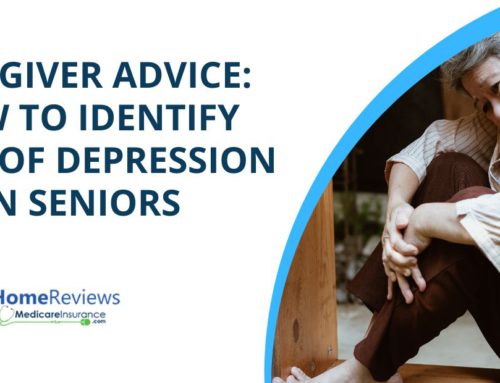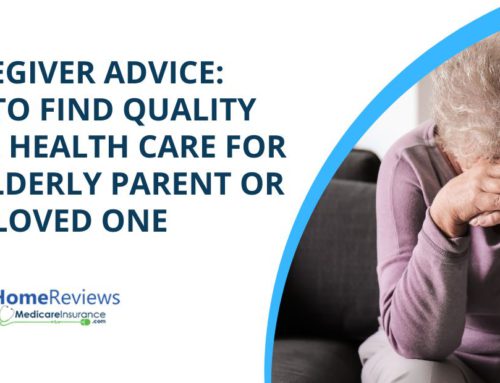
What is a family caregiver?
When parents and close relatives begin to age, many people naturally become concerned about caring for their cherished loved one. Often, children, grandchildren, nieces, and nephews want to step up to provide full-time care for that person. Upon doing so, however, many people begin to realize that full-time care is indeed a full-time responsibility.
Becoming a family caregiver to an aging loved one can quickly put unwanted strain on the person who provides the care, leading to not only practical and emotional difficulties, but financial difficulties as well.
Luckily, there are actually a few options available that allow full-time family caregivers to receive financial compensation for their efforts. To learn more about how to officially become a caregiver for a family member and the possibility of receiving a family caregiver pay rate, read on courtesy of Nursing Home Reviews.
Need long-term care you can count on?
Start your search for the ideal nursing home today.
Can you get paid for being a full-time family caregiver?
You may be pleasantly surprised to learn that it is indeed possible in some circumstances to get paid for serving as a full-time caregiver for a parent or loved one. That said, it is important to keep in mind that Medicare does not pay for long-term family caregivers, and other programs that sometimes do usually vary from state to state. You can research the paid caregiver programs that may be available in your state by clicking here.
Here are a few other options to pursue if you are interested in the possibility of receiving payment to provide full-time family caregiver services to a parent or loved one.
How do I become a paid caregiver for a family member?
Option 1: Determine your eligibility for certain Medicaid self-directed service programs.
In the event that your loved one is eligible for Medicaid, it is possible to receive financial aid from programs known as Self-Directed Medicaid Services. This option is available in some form in most states.
Self-Directed Services programs are designed to provide the elderly and people with disabilities the option to manage a government-allotted budget that can be used to hire and pay for full-time caregivers.
The exact names and regulation on Self-Directed Services programs can also vary by state, so it’s important to triple check the way in which your state’s program works and your family member’s eligibility before deciding on this option.
Option 2: Opt into a home or community-based service program.
Many older adults also have the option to opt into a home or community-based services program that can deliver ongoing support that assists caregivers by providing tax-free daily stipends to make ends meet.
Typically, these programs are available to Medicare beneficiaries who receive in-home care as a result of physical disability, developmental or intellectual disability, mental illness, or age.
Option 3: Determine whether your parent or loved one is eligible for Veteran’s Aid.
If your parent or loved one has served as a member of the U.S. Armed Forces, it’s possible that they may be able to enroll in what is known as a Veteran Directed Care Program. This program enables veterans to manage their own healthcare, which may include hiring and paying long-term caregivers.
Other programs, such as Aid and Attendance, can provide funds which can be used to cover assisted living, nursing home, and at-home care costs, including paying family caregivers. You can contact your loved one’s local Veterans Affairs office to see if they may be eligible for either of these programs.
Option 4: Determine whether your loved one has long-term care insurance that compensates family caregivers.
According to the Family Caregiver Alliance (FCA), there do exist some long-term care insurance policies that include provisions that cover the payment of a family member who provides care. If you are able to determine whether your loved one has such a policy, then it is possible that a caregiver payment may be available to you via your parent or relative’s insurance benefits.
For clarification regarding your loved one’s healthcare insurance benefits, you can always contact the agent or insurance company who issued the policy and ask about possible caregiver payment benefits.
Option 5: Ask whether your employer offers paid leave for family caregiving.
Believe it or not, many companies, including well-known companies like Intel and Sun Life, will sometimes offer paid leave for employees who are responsible for the full-time care of an aging relative.
If you find yourself as the full-time caregiver of an aging relative while under the employ of a company who offers such leave, you may receive up to 16 weeks of paid leave for caregiving. It is important to note however, that a 2018 report by the Bureau of Labor Statistics found that just 16 percent of private-industry employees had access to paid caregiver leave.

What other options do I have for ensuring my loved one is well cared for?
While it is only natural to want to take control of your parent or loved one’s long-term care and health needs, this can be much more challenging than many people think at first. If this sounds like you, remember that as overwhelming and difficult as it may be, you always have the option to relocate your loved one to an assisted living facility, nursing home, or retirement community.
At Nursing Home Reviews, we can take the difficulty and guesswork out of finding the ideal home for your parent or relative. Sign up for an account today to start researching and comparing thousands of reviews, ratings, and violations from local nursing homes in your area, and start compiling a list of your favorites today!
Find the perfect home today.
Check reviews, ratings, and violations for local nursing homes today!





